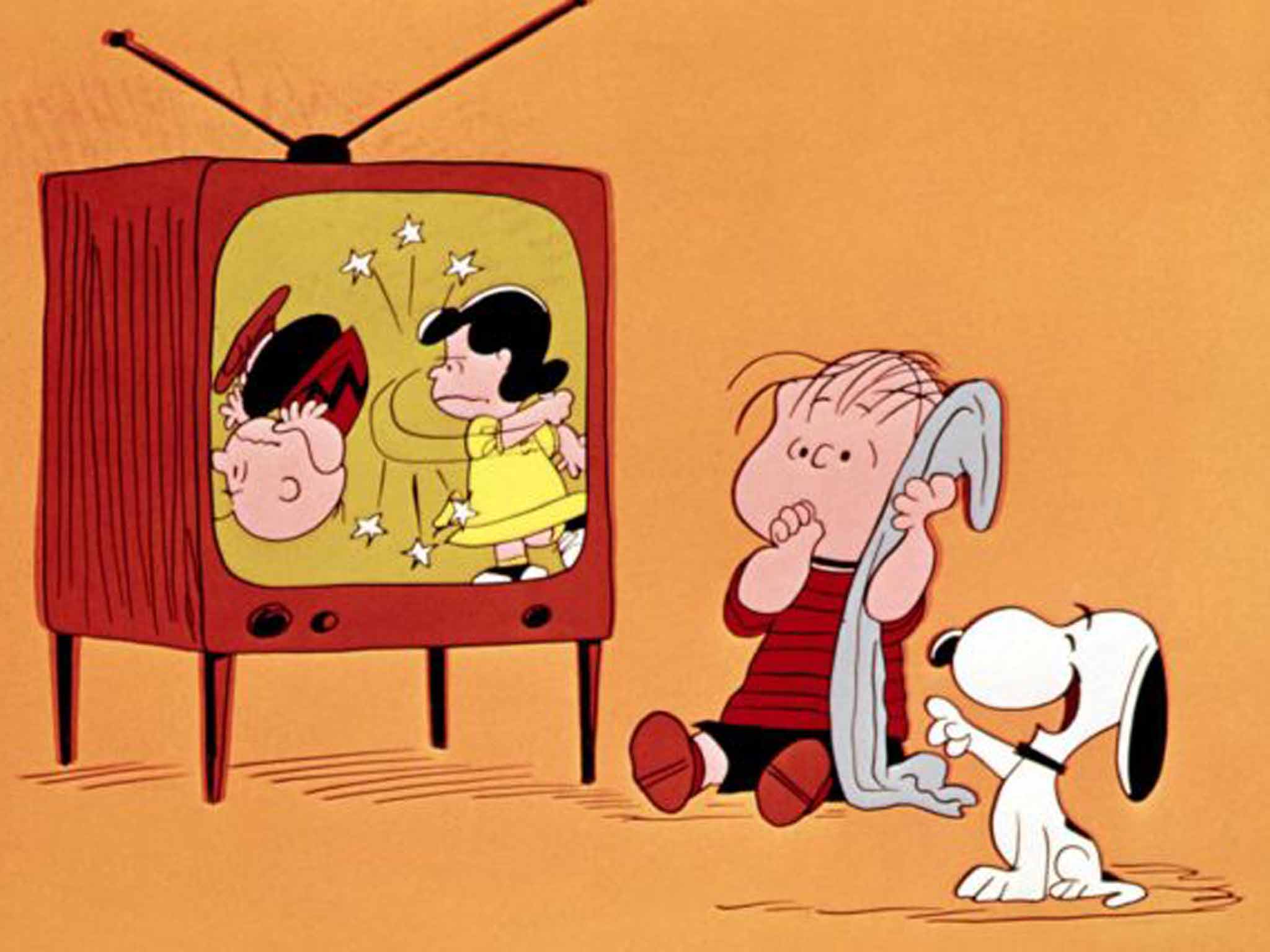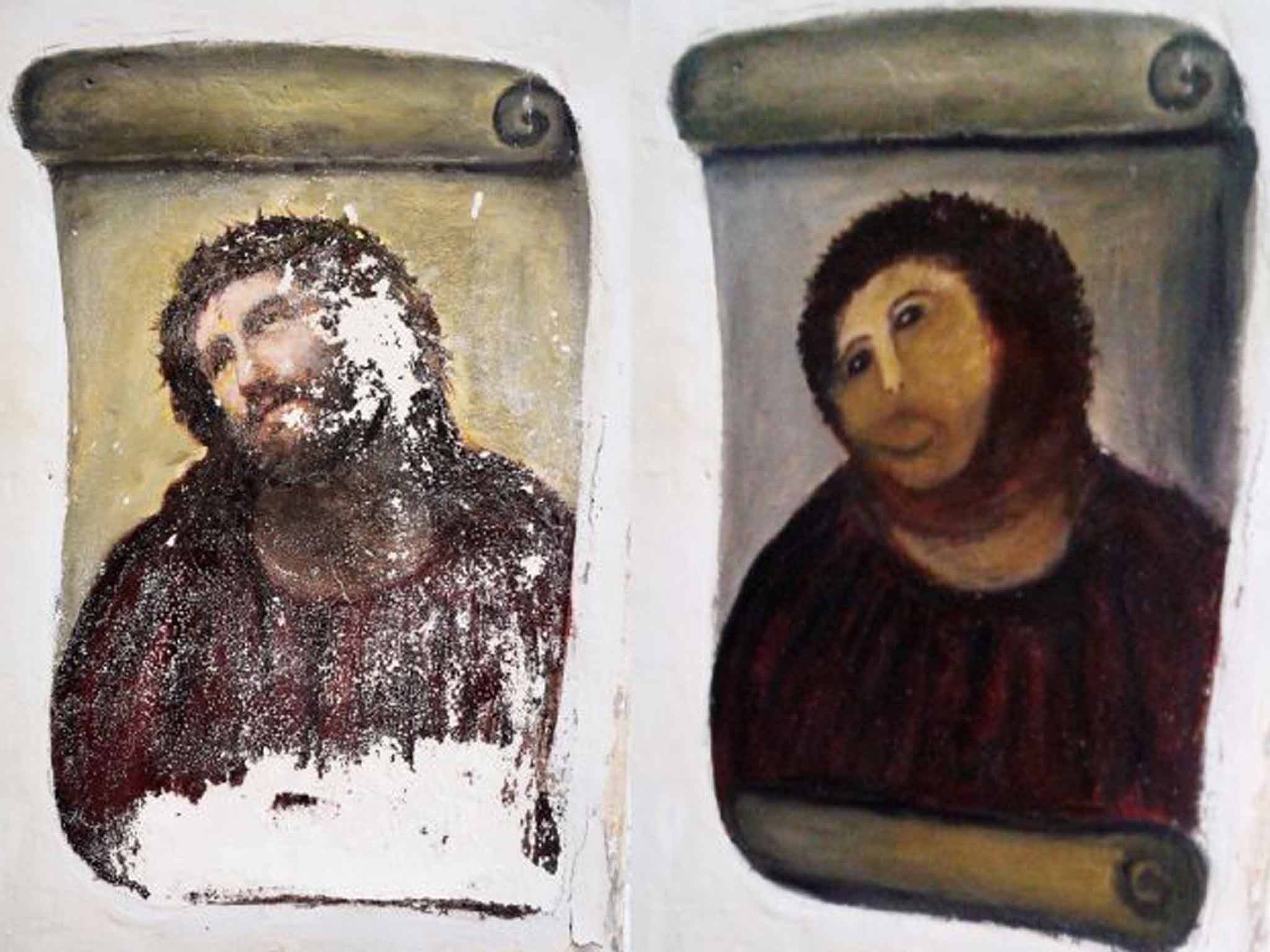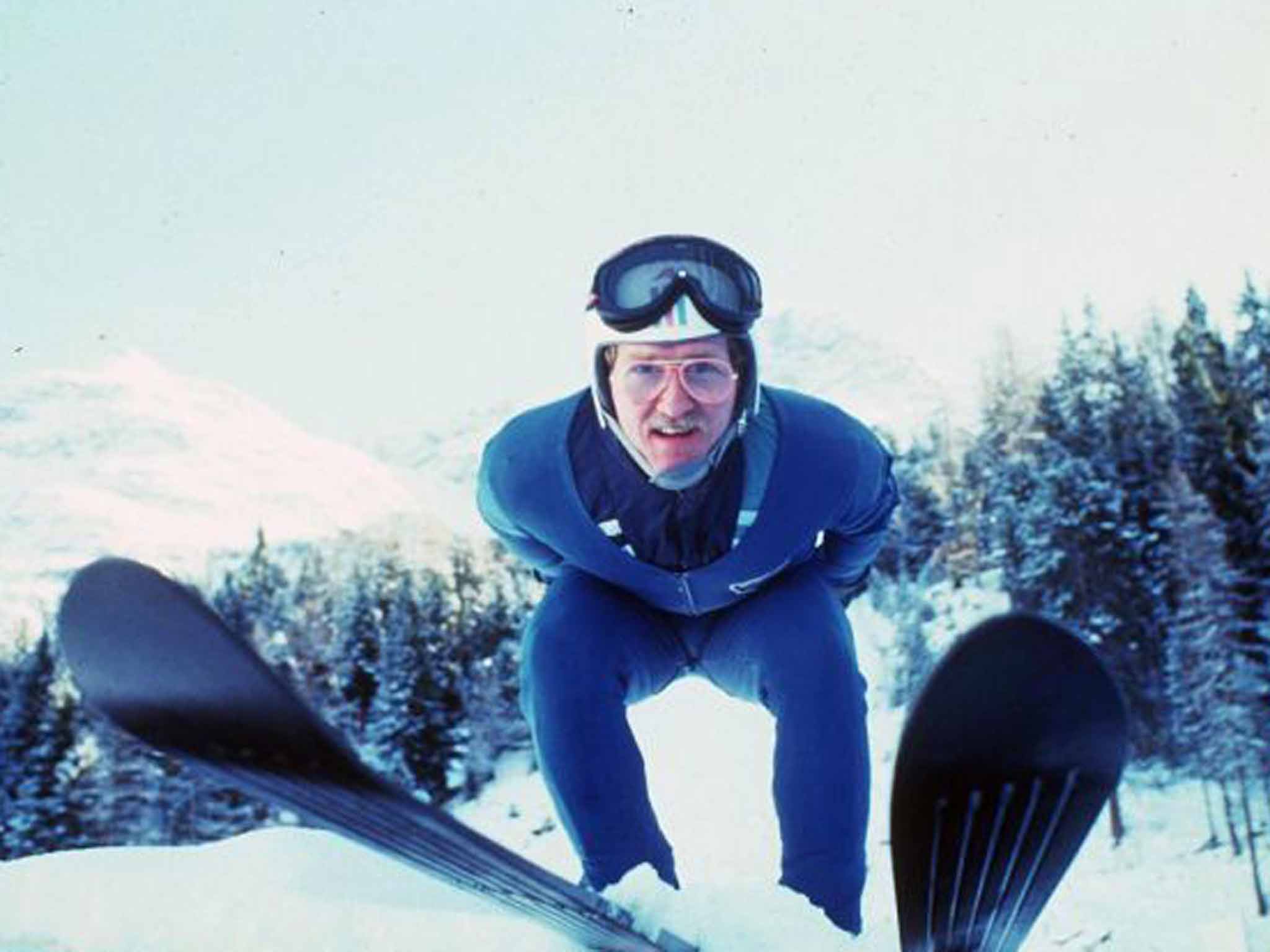How to be more Zen about our failures and learn from our disappointments: From Charlie Brown to Eddie the Eagle
As a new television series explores the idea of failure, Gerard Gilbert asks what we mean by such concepts?

Your support helps us to tell the story
From reproductive rights to climate change to Big Tech, The Independent is on the ground when the story is developing. Whether it's investigating the financials of Elon Musk's pro-Trump PAC or producing our latest documentary, 'The A Word', which shines a light on the American women fighting for reproductive rights, we know how important it is to parse out the facts from the messaging.
At such a critical moment in US history, we need reporters on the ground. Your donation allows us to keep sending journalists to speak to both sides of the story.
The Independent is trusted by Americans across the entire political spectrum. And unlike many other quality news outlets, we choose not to lock Americans out of our reporting and analysis with paywalls. We believe quality journalism should be available to everyone, paid for by those who can afford it.
Your support makes all the difference.I have just finished writing my first novel. It's an incredibly exciting and topical geo-political thriller, with potential roles, once the film rights have been sold, for Matt Damon or Brad Pitt. And if any agents or publishers would like to have a look, then they know where to find me.
That shameless pitch aside, I know that the odds are stacked against me all the way to Waterstones and the Man Booker Prize. The chances of failure are dauntingly high, from getting it published in the first place to having it reviewed positively and tempting anyone to actually buy it. But would the real failure have been not to write it at all? And if it is published, what is the accepted benchmark for failure?
“Failure is about 800 [hardback] copies”, an editor at Picador tells Giles Coren in his upcoming TV documentary Giles Coren – My Failed Novel, part of a season on Sky Arts looking at different aspects of failure. Coren's 2005 novel Winkler (“about an angry and confused young man who hates everyone”) managed to sell a grand total of 771 copies in hardback, he learns during the course of filming, during which he also talks to successful authors such as Jeffrey Archer, Hanif Kureishi and Howard Jacobson. “Even by the standards of not doing well, that's not doing well,” Jacobson tells him.
Jacobson goes on to say that after years of writing books, just getting one published felt like success. “And then there are these things called prizes,” he continues. “If other people get prizes, why shouldn't I?”
So failure is relative, or on a sliding scale of expectation. Was Hitler a failure? Yes, obviously, not least as a human being – but what if he had stopped in May 1940 and said to himself, “Time to get back to painting”? And would he have been more of a failure if he had remained in obscurity, boring his mates down the bierkeller about the global Jewish conspiracy?
“A very good question”, says psychotherapist Phillip Hodson. “Hitler is one of the most famous people of all time, and if you judge success by celebrity, it's hard to say he's a failure. If you look at Hitler in terms of the bitterness of his failure in not getting into art school in Vienna, you might ask: 'Did that turn him to the dark side?'.”
Will Hillary Clinton feel like a failure if she never becomes President, despite being US Secretary of State and a senator? “I think without a great deal of therapy she will,” says Hodson. “Because it's been on the cards so long and she was told it was set up for her, and suddenly we move into a couple of years of world irrationality, or however she wants to see it.”
One could go on. Is Manuel Pellegrini, the coach who guided the Manchester City team to its Premier League title in 2014, a failure because he is about to be replaced by a manager with a more illustrious record of success, Pep Guardiola? And is a team that ends the season in 17th position and avoids relegation a failure or a success? Sometimes survival itself is a success. Just ask anyone who has cancer.
We all know the famous quotations on the matter, from Beckett (“Ever tried? Ever failed? No matter. Try again. Fail better”) to Edison (“I have not failed. I've just found 10,000 ways that won't work”) – or Edison again, surely the patron saint of strivers: “Many of life's failures are people who did not realise how close they were to success when they gave up.”
Perhaps this dictum is open to debate when applied to the restoration of a holy fresco in Zaragoza – now known as the “Beast Jesus” – by a Spanish pensioner (which provoked mirth and fury, but little genuine appreciation). Still, the idea of achieving success, or at least coping with failure, through early exposure to non-achievement – a sort of inoculation if you like – has been trickling through into the educational sphere in recent years. In her book The Gift of Failure, Jessica Lahey drew on her experiences as a parent and secondary-school teacher to conclude that, “We've ended up teaching our kids to fear failure – and in doing so, we have blocked the surest path to their success.” The root of the problem, thinks Lahey, is our results-driven culture and over-protective parenting that is “fostering a generation of narcissistic, self-indulgent children unwilling to take risks or cope with consequences”.

“Because most of the world is about success and failure and harshness,” agrees Hodson, “I do think it's important not to over-cushion our children, not to pretend everything they produce is glorious.” And this idea has been taken out of the theoretical realm and into the classroom by at least one high-achieving girls' school, Wimbledon High School, which in 2012 introduced a “failure week” to teach pupils to embrace risk, build resilience and learn from their mistakes. “The girls need to learn how to fail well and how to get over it and cope with it,” headmistress Heather Hanbury told the BBC. “It is completely acceptable and completely normal not to succeed at times in life.”
“Failure only happens when you stop breathing, everything else is just an experience,” says Steven Sylvester, a psychologist who works with top athletes and business leaders. “If we look at life from a win/lose perspective then we are always going to be on the brink of failure. What we should be doing, especially with children, is to embrace when things don't go right. Let's celebrate the opportunity to learn.”
“It's inhibiting when somebody is scared of failing, so they play it safe,” says Dr Nick Baylis, author of The Rough Guide to Happiness who taught “the science of well-being” at Cambridge University. “And that's in any aspect of life, from romantic, taking a tennis shot or a shot at goal, to coming up with a business idea around a boardroom table. The moment we think we can't handle failure is the moment we can't play anything close to our best game in professional or personal lives. Can you have too much failure? The short answer is no, as long as you don't die before you've landed a punch.”
It's an upbeat message I hear several times in the course of my enquiries. But is there such a thing as too much failure? As author William Nicholson tells Giles Coren in the documentary, “Too much failure can be crushing.”

“Adversity breeds backbone”,agrees Hodson, “but it also causes people to kill themselves and you can't necessarily feel that suicide is successful as a solution to problems. There is a breaking point in everyone, however Donald Trump-like they may appear to be. It is not helpful to lose two parents, lose your job and then be told that you have multiple sclerosis and at the same have your partner leave you... I've known people in that sort of situation. You don't survive that, really.”
Perhaps we all need to start reading Peanuts, Charles M Shulz's comic strip tales of Charlie Brown, his bubble-headed friends and his beagle, Snoopy. Writing in Vice magazine of the then upcoming Peanuts film, columnist Harry Cheadle feared that the comic strip's “undercurrent of existential dread” might be excised. “These days, most entertainment for children is big on lessons learned and personal growth,” writes Cheadle. “But Charlie Brown never kicked the football, the kids never grew up... We struggle, we screw up, we carry failure with us wherever we go, and we learn to live with it. Schulz got it. Sometimes you don't learn anything when you fail except how to shoulder that failure, and how not to let it make you any less kind or open-hearted.”
As far as I know, Shulz had no interest in Buddhism, but his philosophy in Peanuts doesn't seem out of tune with the Nepalese sage. “From a Buddhist viewpoint, life is inherently painful... it starts off pretty painful and it ends very painfully,” says Dr Desmond Biddulph, a Jungian analyst who is the president of the Buddhist Society. “But life in between is made up of good things happening to you and bad things. Putting karma aside, it's a question of coping with things when they don't go well and not getting carried away with things when they do go well.”
Biddulph quotes from Kipling's poem “If”, the bit about triumph and disaster both being imposters. “It's all subjective... it's you and your reaction to these events and how you cope with things. It's just as dangerous for something good to happen to you as something bad. Something good and you can get carried away and think you're something special and that life will go on being very pleasant, and when something bad happens you can draw all sorts of false conclusions from that – that you are a defective human being or at fault in some way, when it's only circumstances.”
“There may be circumstances in life where failure is scientifically clear,” says Hodson. “Where you failed to make the experiment work... you failed to prevent the asteroid crashing into the Earth. But in a lot of circumstances it's a matter of opinion and interpretation, bias and prejudice and fashion and so on. And that's part of psychotherapy, to get people to see that they're over-judging themselves sometimes.”
Failure is often said to have a smell – the opposite of the “sweet smell of success”, if you like – and in a particular way this is true. Scientists long ago discovered that smells that became associated with failure could then condition people to fail. Researchers at the Monell Chemical Senses Centre in Philadelphia had volunteers enter an impossible maze while the researchers emitted a subtle flower scent. When the same volunteers were given a relatively simple maze to navigate, those not exposed to the scent found their way out easily, while those who had come to associate the floral scent with failure were baffled.
We British are said to celebrate heroic failure, which is perhaps a form of acceptance of post-imperial decline or just an extension of our national propensity to self-deprecation. Comedian Tony Hancock was one of life's great losers, and it's significant that, despite his best efforts, Hancock flopped in the States. One of our most celebrated recent heroic failures, Michael Edwards, better known as ski jumper “Eddie the Eagle”, became a national folk hero following his dismal showing during the 1988 Winter Olympics, and a movie of his exploits opens in the UK next month.
Another British movie, How to Lose Friends & Alienate People, fictionalised “professional failure” Toby Young's attempts to make it as a journalist on Vanity Fair magazine in New York. In a 2014 article for The Spectator (“Lessons from Tina Brown on the art of failing upwards”), Young analysed the difference between British and American attitudes to failure. In New York, he wrote, “once a person has 'arrived' they feel they cannot admit to any setback without jeopardising their A-list status”. Young concluded that this was because of America's lack of a class system. “In America, people are judged by where they've ended up, whereas in Britain it's more about where you start.”
Until recently, American drama hasn't embraced many losers – the most significant failure-protagonist being Willy Loman in Athur Miller's 1949 play, Death of a Salesman. And then there are the regulars of Cheers, although who can be considered a failure in an establishment where everybody knows your name?
On the other side of the camera, it's a far more brutal existence. Take another revealing documentary in the Sky Arts season, which sees actor David Harewood exploring the “F-word”, the biggest taboo in acting circles – admitting to “failure”. Harewood went from being down to his last £80 and unable to pay his mortgage to being one of the stars of Homeland, the world's most feted TV drama at the time.
But it's what his co-star Damian Lewis says that really exposes the harshness of the Hollywood win-lose ethos. Lewis was awarded the career-cementing role of Nicholas Brody in Homeland in 2010, just after his previous project, Life, had been cancelled after two seasons (that's 32 hours of television – hardly a complete disaster). Lewis was told later that had there been knowledge of Life's cancellation beforehand, he would probably not have won the role of Brody. “There's no such thing as a good cancellation in Hollywood,” observes Harewood. “Mud does seem to stick in this business.”
“This highly competitive, winner-takes-all sort of stuff – it doesn't think of the person inside,” says the Buddhist Society's Biddulph. “It's a meritocracy gone mad and it's linked in with money... it's no longer doing well at something, it's about accumulating loads of money. You might have a minor success, you might write a beautiful poem enjoyed by 4,000 people, but it's meaningless if you don't make money.”
“It's our celebrity culture,” says Hodson. “If you take the most famous people in 1919 or 1920, probably we don't know the names of any but two of them now. Success is so temporary, it doesn't leave a lasting influence. 'My name is Ozymandias, king of kings: look on my works, ye mighty and despair!'”
Hodson goes from quoting Shelley to discussing the ending of George Eliot's Middlemarch, in which the unfulfilled heroine, Dorothea, comes to realise that the fame she so craved was not all it was cracked up to be. Real success, says Hodson, is closer to hand – in your relations with other people. “In the course of your life, you are going to have a chance to influence – in an important sense – maybe 200 people. How well did you do? That's the question.”
Join our commenting forum
Join thought-provoking conversations, follow other Independent readers and see their replies
Comments